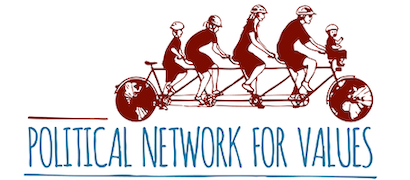By Fernando Rodríguez Doval | Something is changing in Cuba. Something is moving. The sounds of freedom, shouting “Homeland and Life“, are heard in all corners of the Caribbean island. It is difficult to imagine what the spontaneous movement that has brought thousands of people to the streets could lead to, perhaps as never before in sixty-two years of communist dictatorship, but we can sense that nothing will be the same.
Cubans can’t take it anymore. The propaganda of the regime, spread over buildings, roads and billboards, does not feed them. Because of ideology you do not eat or live, although you can die. There is a shortage of medicines along with a vertiginous increase in infections of Covid-19; food is scarcer even more than before; basic services such as water, gas or electricity are not reaching homes. In addition, the communist government has started all its repressive machinery in order to stay in power.
Contrary to what the revolutionary story has spread with great success, in 1958 Cuba was one of the most prosperous nations in all of America. It had an average income higher than almost all the countries in the region – including Mexico – and its literacy and daily reading rates per inhabitant exceeded almost all the others. It also had the best health indicators. It had an independent and vigorous middle class, from whose ranks came the revolutionary leaders who, at first, said they wanted a political change to democratize the regime, but who never alluded to a possible subversion of the economic order.
The Manifesto of the Sierra Maestra, with which Fidel Castro summoned the Cuban people to fight against Fulgencio Batista and which appeared on July 28, 1957, never spoke of establishing a Marxist-Leninist regime. You can read it here. On the contrary, he spoke of freedoms, “absolutely clean and impartial” elections within a year, or “the democratic and constitutional channeling of the country.”
Sixty-two years later, Cubans are still waiting for the fulfillment of those promises. Because once they came to power, the revolutionaries led by Fidel Castro established a communist dictatorship that banned all other parties, concentrated power, closed down the most elementary freedoms, and persecuted anyone who opposed such decisions, including several revolutionaries. primitive men such as Huber Matos, who spent more than 20 years in prison and was later expelled from the country, or Camilo Cienfuegos, who disappeared after a mysterious plane accident, and who after his death became a myth, even though he was never a communist .
That dictatorship has already lasted more than sixty years. As much as its defenders try to make argumentative ropes, the truth is that today Cuba is very far from being that communist utopia that they proclaim. The health system is collapsed, there are no medicines, there is a shortage of food, young women prostitute themselves in order to obtain the most basic goods, shortages are the norm and not the exception. Furthermore, the dissident is repressed and the most fundamental rights and freedoms cannot be exercised.
Faced with this situation, the reaction of the governments that have expressed their support for the tyranny, including the Mexican government, and of what Lenin called “useful fools” generates repulsion. The former use a worn and hypocritical “hands off” speech. The latter, several of them are members of the intellectual elite, argue that the commercial blockade is really the culprit of the humanitarian crisis that the island is experiencing. It is important to refute the latter. Blaming the new Cuban crisis on this supposed international blockade, in addition to being childish, is false. Cuba has trade agreements with practically all the countries in Latin America, as well as with several in Europe and Asia. Rather, the problem is perhaps that no private individual can participate in these agreements. In other words, the problem is not the supposed international embargo – even Cuba has some exchanges with the United States – but the communist statism that prevails in its economy. That there is no free exchange of goods and services in Cuba discourages the generation of wealth and encourages the black market and multiple illegalities.
Where should Cuba go? Despite everything, it seems to be clear. You don’t need to doctorate in political science to know that Cuba will be better off if there are free elections, organized by an independent and impartial authority; if the Communist Party is dissolved as a single state party and the political plurality indispensable in any democracy is recognized and allowed; if a new Constitution is drawn up that establishes a democratic regime that guarantees fundamental rights and freedoms; if a true social market economy is allowed that allows free exchanges of goods and services. Of course, achieving all of this will not be easy, but it is essential that the opposition and the government take steps there. At the same time, the social fabric, damaged by more than six decades of totalitarian state control, must be reconstituted.
A hope appears on the horizon. The unprecedented and numerous protests in recent weeks suggest that something is changing in Cuba. The Cubans have lost their fear and have decided not to shut up anymore. Hopefully that is how their leaders and the international community understand it.
•
Fernando Rodríguez Doval is a political scientist and secretary of Strategic Studies and Analysis of the National Action Party (PAN) of Mexico.


